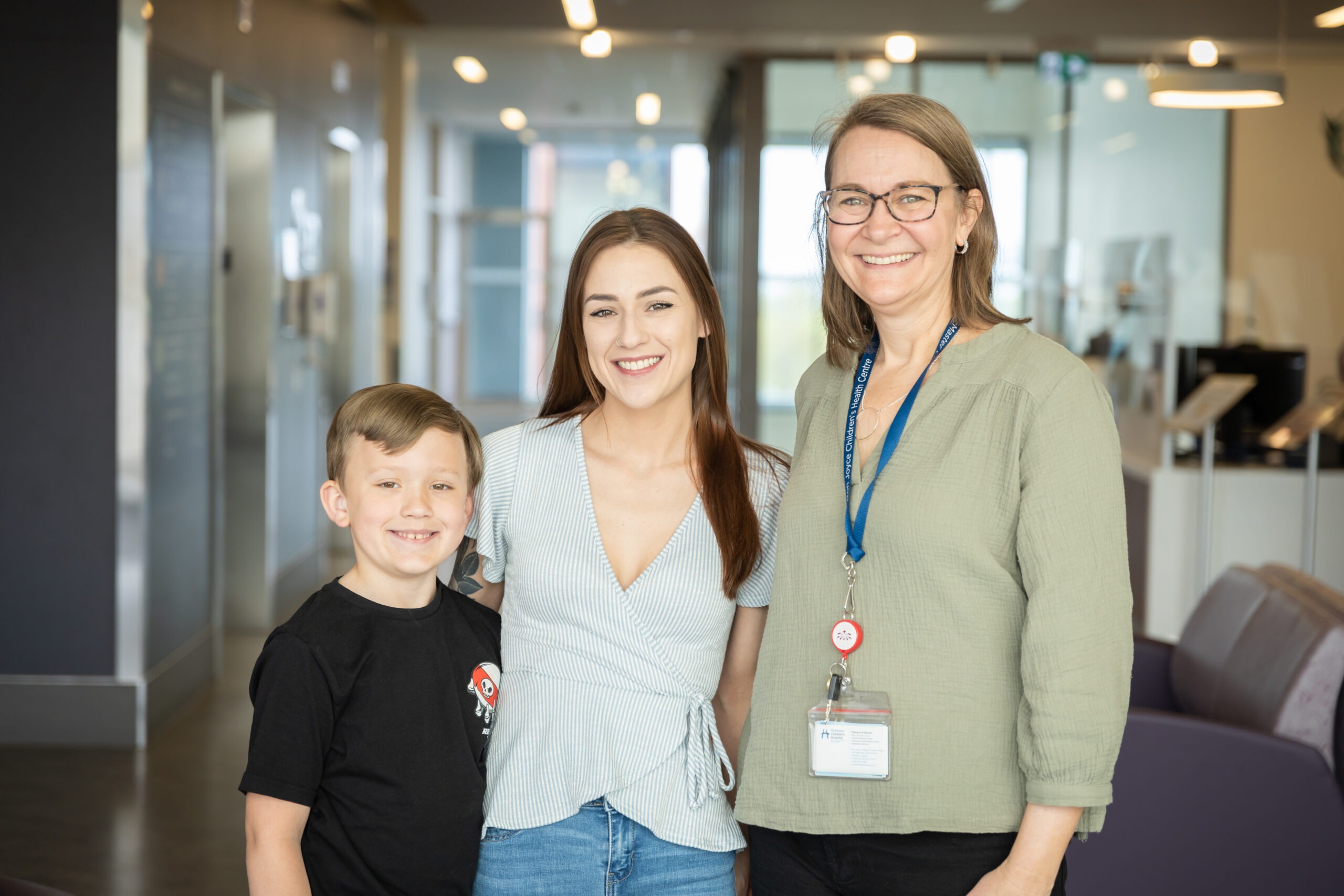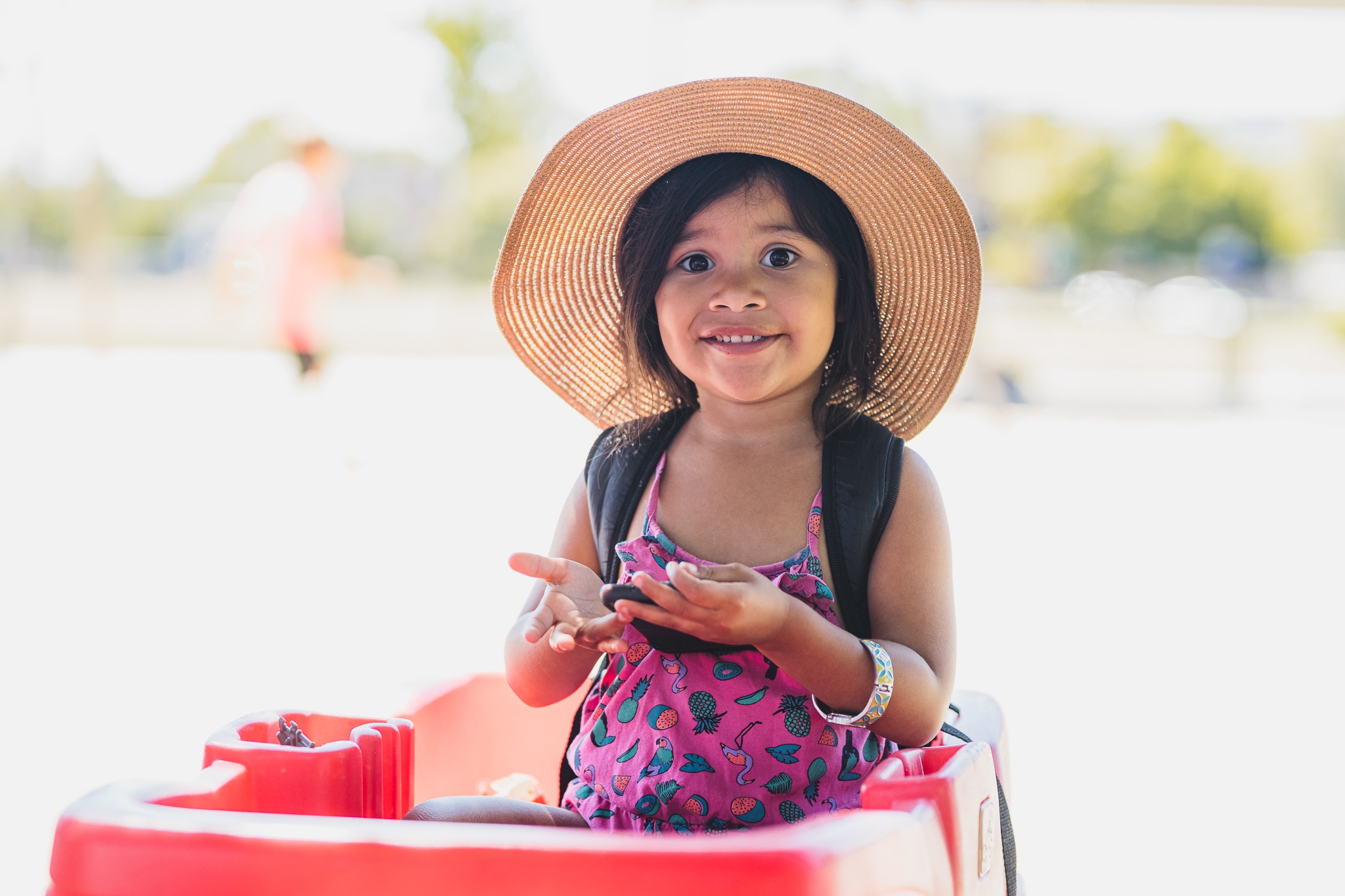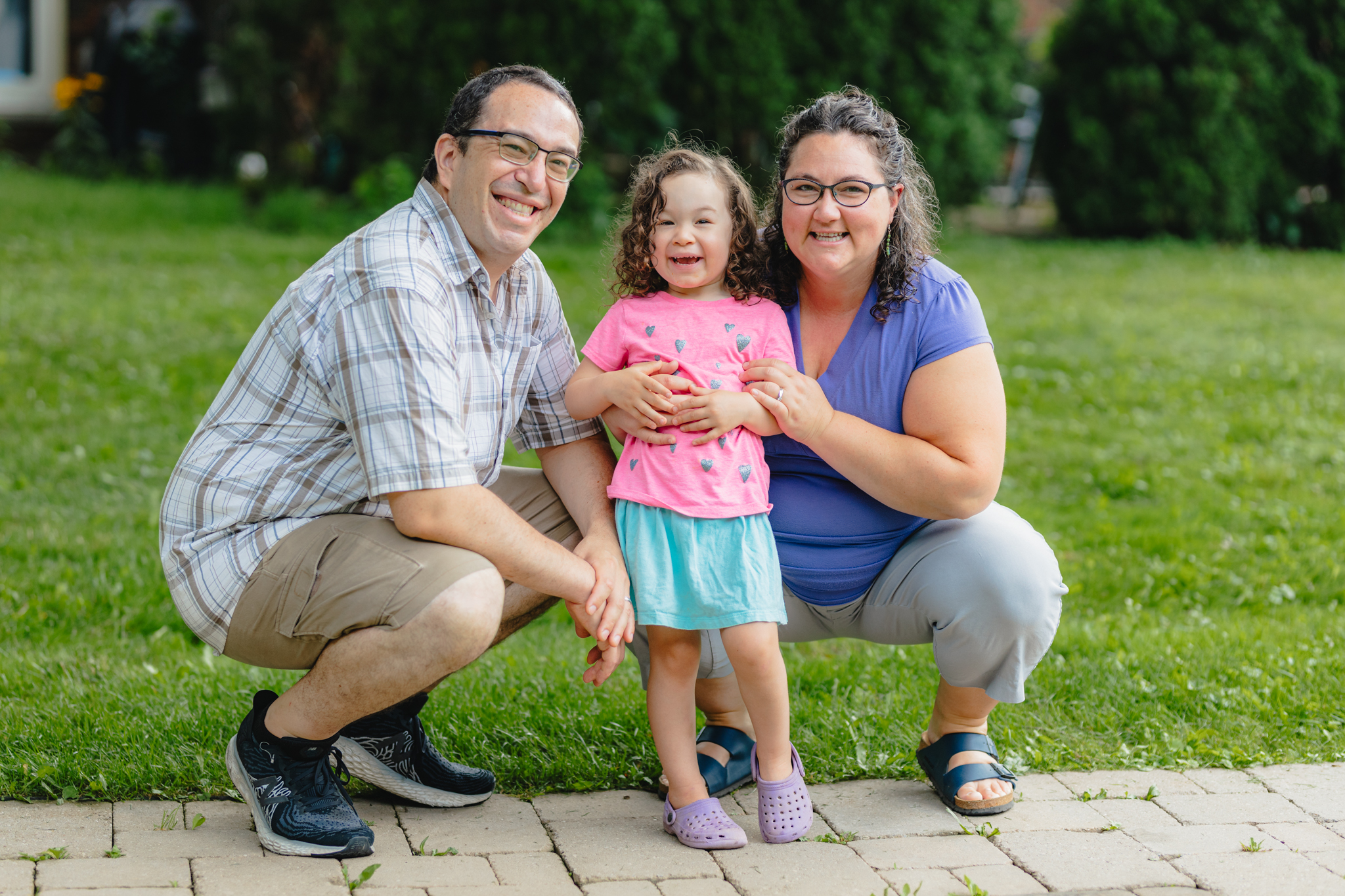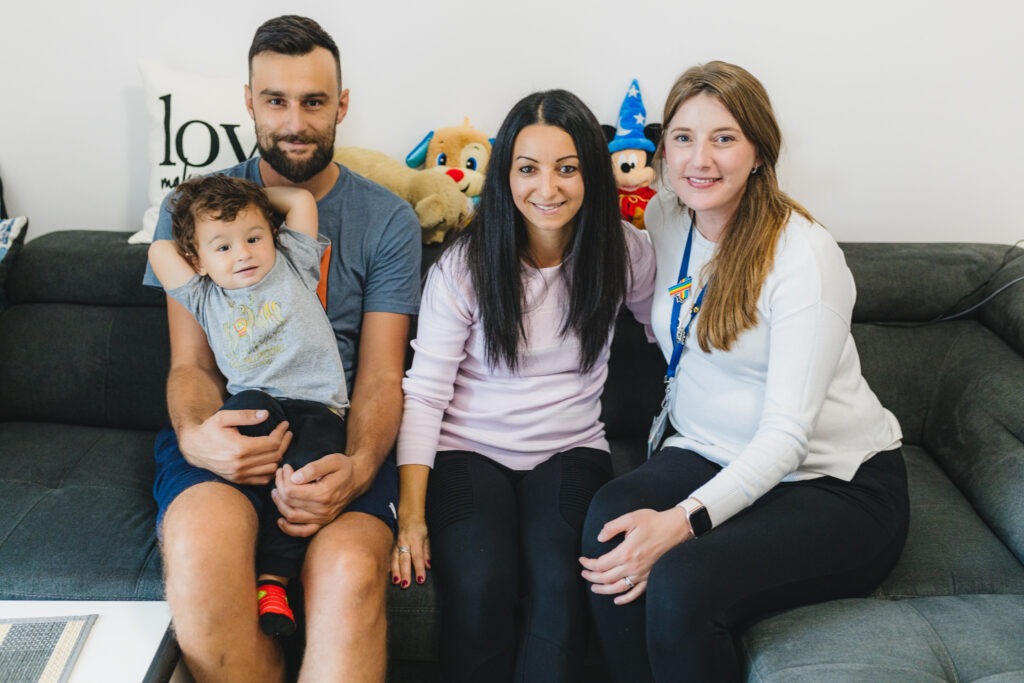
Infant-parent program builds capacity, communication and confidence
When Ivan was 18 months old, his mom, Cristiana, noticed he was having some delays in communication and development. To help ease her worries, she looked for services to help promote conversation and interaction in young children. Thanks to the Hamilton Health Sciences’ McMaster Children’s Hospital Infant-Parent Program at Ron Joyce Children’s Health Centre (RJCHC), Ivan has shed his shell and begun to take the right steps forward.
With the help of Kristina Tofano, an infant-parent specialist, Ivan’s communications and interaction skills have taken a leap forward, just in time for his first year of preschool.
Support from birth
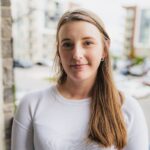
Infant-parent specialist Kristina Tofano
Tofano works in the Developmental Pediatrics and Rehabilitation program at RJCHC. The team specializes in early child development providing intervention, consultation and support to families with concerns about their child’s development.
“Our program serves children right from birth who have a developmental disability or are at risk for a developmental delay,” says Tofano. The primarily home-based early intervention program works with children and their parents or caregivers to build skills through routines in their natural environment.
A new take on working from home
Ivan was referred by a community pediatrician for developmental delay, suspected autism, and for parenting support. Through this referral, his family chose home visiting and a speech and language consultation with the RJCHC team.
“My partner and I were able to see and practice the routine directly with Ivan, with Kristina’s support and guidance, which really helped.”
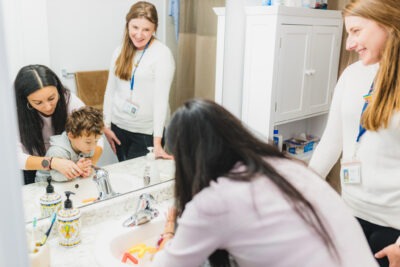
Kristina Tofano (right) provided support for hand-washing in the comfort of Ivan’s bathroom at home.
“When I met with the family, Ivan was 25 months old and their main goals for Ivan were to increase his back-and-forth communication and promote interaction, as well as making handwashing at home less stressful for him,” says Tofano.
One of the challenges Ivan had was figuring out how to communicate when he wanted things.
“Ivan had poor eye contact and didn’t follow directions very well,” says mom Cristiana. “The goals we had set out before starting the program were to encourage Ivan to communicate to us when he wanted something. With this plan, we practiced simple instructions like putting his toys away, and playing directly with him one-on-one to get more eye contact.”
Being a hands-on program, Cristiana and Ivan were able to work together in their own environments, such as their home. “We were interested in the program because it was in-home, with hands-on visits,” says Cristiana. “My partner and I were able to see and practice the routine directly with Ivan, with Kristina’s support and guidance, which really helped.”
During the home visits, Tofano provided coaching and strategies that Ivan’s parents could do at home with him.
“It was ideal to see Ivan in his home, as this is where he is most comfortable and has established routines,” says Tofano. “We were able to practice handwashing in his own bathroom and encourage interactive games with items and the people he was familiar with.”
An added autism diagnosis
During the program, Ivan received an autism diagnosis from a community pediatrician and Tofano provided emotional support to his parents as well as helping with the next steps after receiving the diagnosis.
“When Ivan got diagnosed with level-one autism, Kristina was there for us and supported us with the many questions and concerns we had,” says Cristiana. “Because of her tremendous support, we began to feel comfortable with Ivan’s diagnosis and learned ways to help navigate through it.”
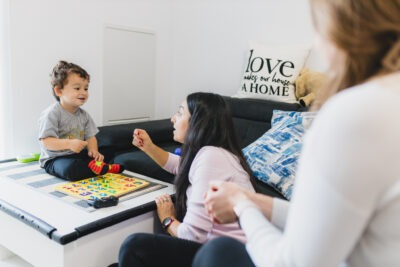
Ivan’s parents worked on communications strategies based on coaching from Tofano, improving Ivan’s skills.
Through these sessions, Ivan’s parents have seen an increase in Ivan’s communication and interactions, such as using more words.
“Now, Ivan refers to his parents as mama and dada,” says Tofano. “I remember Cristiana sharing with me that she went into her room and Ivan followed and said ‘hi mama’. It’s simple moments like these that are really impactful on families.”
Ivan has also been using many ways to communicate with this family. Whether it be using the phrase ‘help me’ more consistently when needing help, filling in parts of songs, or using gestures, his communication skills are increasing.
Learning through special moments
Tofano says that throughout their sessions, Cristiana and her partner’s confidence grew as parents, and together they celebrated new accomplishments they’ve achieved as a family.
“Each time I visited for at-home sessions, we talked about what had been accomplished since our last session, and the family always had new things to share,” says Tofano. “Ivan is now pointing and labelling when something interests him, he uses the word ‘open’ consistently and in context, and washes his hands with more ease.”
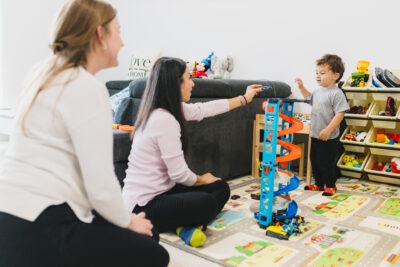
Building up communication and zooming through development.
One of Ivan’s favourite activities is throwing rocks in the water and spending time outdoors. “One of our sessions took place at the beach,” says Cristiana. “We grabbed a bunch of rocks in our hands and encouraged Ivan to say ‘open’ to get the rocks from our hands to throw them in the water. It took a couple of times using the word until he got the hang of it, but he started to understand the process and eventually figured out how to ask for the rocks to throw them in the water.”
Tofano adds, “His parents were like sponges. Every time I made a suggestion, they practiced it. It was great to see them in their home because we used toys and routines that they already had.”
A bright future ahead
Ivan started Applied Behaviour Analysis therapy this September and has been progressing well. “The future looks bright for Ivan, and we’re very blessed to have worked with Kristina,” says Cristiana. “Ivan got very close to her and enjoyed her company very much.”
As an infant-parent specialist, Tofano’s main focus is to provide coaching strategies for parents that ultimately assist in the development of young children.
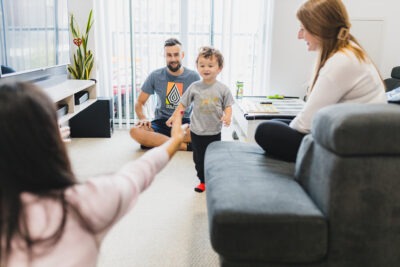
Family-centred care is at the heart of our infant-parent program.
“My job is to build capacity with the families I work with,” says Tofano. “I’m with them for a short period of time and I want to make sure that they have the confidence to continue to use the strategies once I leave. There is a real collaboration between the family and I, and it starts at our first visit. Getting to know the family and building a therapeutic relationship is at the heart of what I do, and is what family-centred care is all about.”

